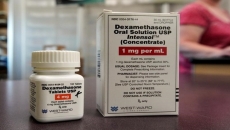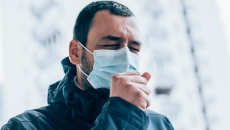New Delhi, May 6 (IANSlife) Cardiovascular disease continues to be a major global health concern, with heart attacks and strokes ranking as leading causes of death worldwide. However, these conditions are not inevitable. Individuals can take proactive steps toward safeguarding their heart health with conscious lifestyle adjustments and medical interventions. Dr. Niranjan Hiremath, Senior Consultant Cardiac and Aortic Surgeon at Indraprastha Apollo Hospitals, New Delhi, said, "Heart health is a delicate balance of prevention and early intervention. Small, consistent lifestyle changes can drastically reduce risk over time."
Checkout the 12 essential heart health tips by Dr. Hiremath:
Adopt a balanced diet: A healthy diet is fundamental to maintaining a healthy heart. Aim for a balanced intake of fruits, vegetables, whole grains, lean proteins, and healthy fats. Avoid saturated fats, trans fats, and excessive sugars, which can contribute to obesity, high cholesterol, and other cardiovascular risks.
Exercise regularly: Regular physical activity is vital for a healthy heart. The American Heart Association recommends at least 150 minutes of moderate exercise or 75 minutes of vigorous exercise per week. Activities such as brisk walking, jogging, cycling, or swimming can boost cardiovascular fitness, strengthen the heart muscle, and improve circulation. Even light activities like gardening or taking the stairs can contribute to heart health by burning calories and reducing cholesterol levels.
Manage stress effectively: Chronic stress has been shown to contribute to heart disease by raising blood pressure, causing unhealthy behaviours like overeating or smoking, and increasing inflammation in the body. Developing stress management techniques such as meditation, deep breathing exercises, or yoga can help to relax the mind and body. Engaging in hobbies or activities that bring joy, such as reading, painting, or spending time in nature, can also help mitigate stress levels.
Monitor your blood pressure: High blood pressure, or hypertension, is often called a "silent killer" because it may not present symptoms but significantly increases the risk of heart attacks and strokes. Regularly monitoring blood pressure at home or with a healthcare professional can help identify any issues early on. If necessary, medications and lifestyle changes such as a low-sodium diet, regular exercise, and stress management can help maintain healthy blood pressure levels.
Get regular check-ups: Routine medical check-ups are essential for catching potential heart issues early. Regular cholesterol screenings, ECGs, and other tests can help monitor cardiovascular health and identify issues before they escalate. Early detection allows for timely intervention, reducing the risk of more severe complications.
Quit smoking: Smoking is a major risk factor for heart disease, damaging blood vessels, raising blood pressure, and contributing to atherosclerosis. Quitting smoking is one of the most effective steps one can take to improve heart health. Seek support from smoking cessation programs, counselling, or medication to aid in breaking the habit.
Limit alcohol consumption: Excessive alcohol consumption can raise blood pressure, increase triglyceride levels, and contribute to heart disease. The American Heart Association recommends a maximum of one drink per day for women and two drinks per day for men. Opting for non-alcoholic beverages, moderating consumption, or seeking support from health professionals can help reduce alcohol-related cardiovascular risks.
Maintain a healthy weight: Obesity is a significant risk factor for cardiovascular disease, high blood pressure, and diabetes. Maintaining a healthy weight through a balanced diet and regular exercise can significantly reduce these risks. For sustainable weight management, avoid crash diets and seek guidance from healthcare professionals or nutritionists to develop a plan tailored to your needs.
Sleep well: Lack of sleep has been linked to various health issues, including heart disease. Aim for 7-8 hours of quality sleep per night. Developing a consistent sleep routine, avoiding electronic devices before bed, and creating a relaxing bedtime environment can help improve sleep quality.
Stay hydrated: Dehydration can thicken the blood, increasing the risk of blood clots and heart strain. Ensure adequate hydration throughout the day, especially in hot weather or during exercise. The recommended daily intake varies depending on individual needs, but generally, adults should aim for 8-10 cups of water per day. Proper hydration helps maintain cardiovascular function and overall health.
Control cholesterol levels: High cholesterol contributes to plaque build-up in the arteries, increasing the risk of heart attacks and strokes. Regular cholesterol screenings can help monitor levels and catch any issues early. A diet rich in fiber and low in saturated fats, alongside regular exercise and medication, if necessary, can help maintain healthy cholesterol levels. Consult your healthcare professional for personalized advice on managing cholesterol.
Manage diabetes: Diabetes can increase the risk of cardiovascular disease by damaging blood vessels and nerves. Managing diabetes through diet, exercise, and medication can help reduce these risks. Regular monitoring of blood sugar levels and consulting a healthcare professional for comprehensive diabetes management is crucial for overall health.
Taking proactive steps to care for your heart can drastically reduce the risk of cardiovascular disease. Dr. Niranjan Hiremath reiterates, "Preventive measures and lifestyle modifications play a crucial role in maintaining a healthy heart. It's important to take charge of your health before it takes charge of you."






